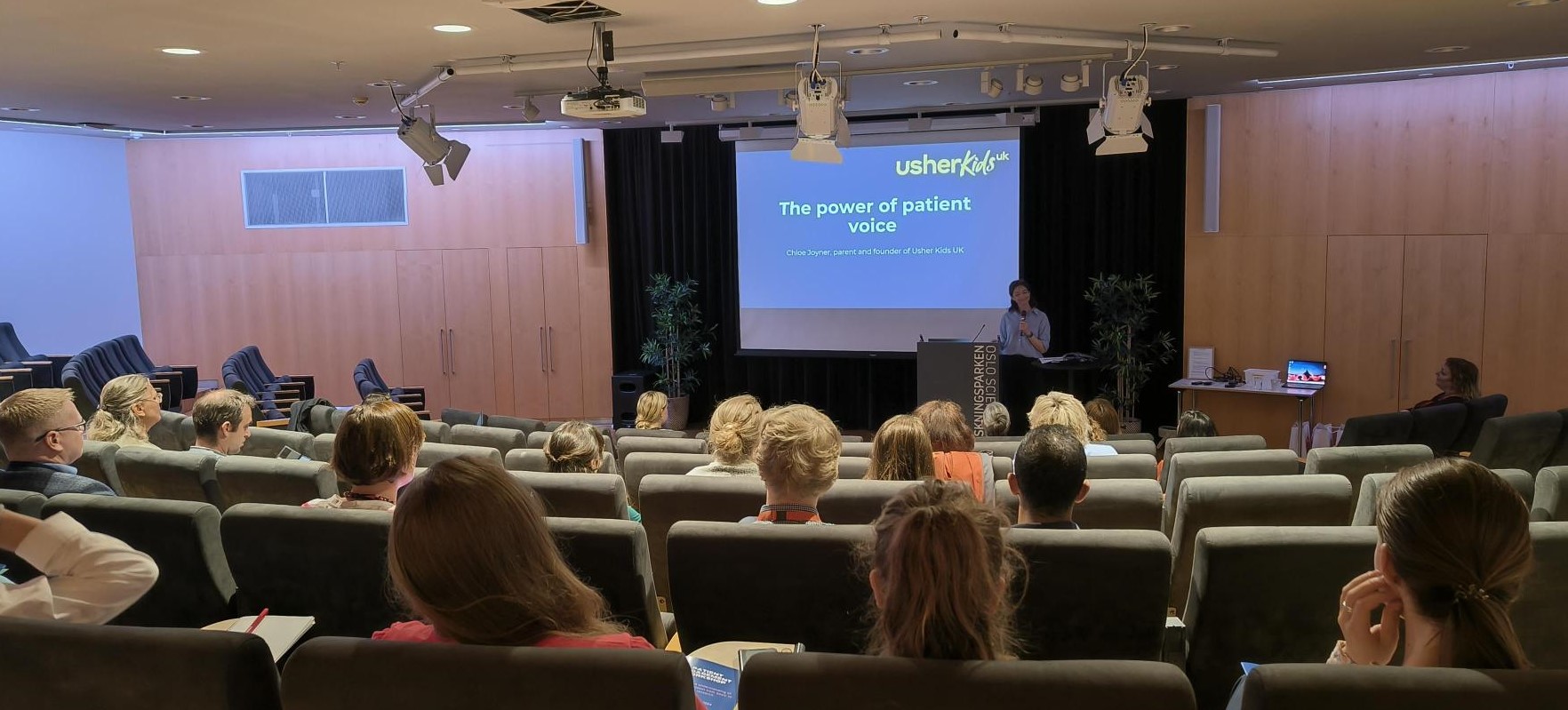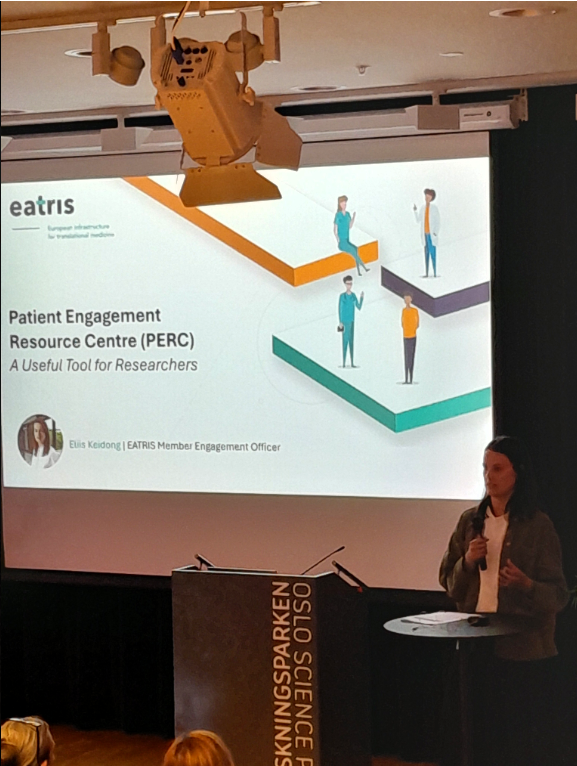On 20 August, The Centre for Molecular Medicine Norway (NCMM), the NCMM Trainee Committee together with EATRIS hosted a patient engagement workshop to raise awareness of research scientists on the importance of involving patients early in the research process. The workshop featured patient representatives, other research infrastructures including our own Eliis Keidong (EATRIS Member Engagement Officer) and Anita Kavlie (National Coordinator for EATRIS Norway) as speakers.
The Centre for Molecular Medicine Norway (NCMM), the NCMM Trainee Committee and EATRIS hosted the collaborative workshop. This was partly funded by the University of Oslo Life Science Initiative Internationalisation support grant, received by NCMM director Janna Saarela, and EATRIS-CONNECT, a Horizon Europe INFRADEV project coordinated by EATRIS. The workshop focused on rare diseases and included participants from patient organisations with parents of children with rare diseases, European reference networks, and other European research infrastructures (Elixir, BBMRI, ECRIN). The speakers presented information and tools aimed at improving patient outcomes. The programme also enabled researchers to learn about the importance of including patient engagement plans in funding applications.

During the workshop, three international and one national patient organisation, all founded by parents of children with rare genetic diseases, shared their experiences. Chloe Joyner, whose daughter has been diagnosed with Usher syndrome, is the founder of Usher Kids UK and a passionate advocate for cross-sector collaboration to improve outcomes for those with rare conditions. Alan Finglas, the founder and research manager of MSD (Multiple Sulfatase Deficiency) Action Foundation, driven by his son’s condition, discussed the pitfalls and successes of being a patient advocate. Chip Chambers, an endocrine surgeon and the founder of the DADA2 Foundation spoke about his efforts in connecting patients, researchers and clinicians to advance the understanding and treatment of the disease. Lastly, Marita Gunn Sandnes (co-founder of GRIN Europe), with Lone Jelva Hansen, both co-founders of the Association for Rare Neurodevelopmental Disorders; and Line Hole, leader of EUPATI Norway – an organisation providing education and training for patients, patient advocates and researchers – gave insightful presentations on the landscape of patient engagement in Norway, addressing the shortcomings and exploring ideas for improvements.
On the image, Chloe Joyer presenting Usher Kids UK.

Eliis Keidong, member engagement officer at EATRIS, discussed activities of how EATRIS supports Patient Engagement and presented the Patient Engagement Resource Centre (PERC) co-developed by EATRIS, the European Patients’ Forum (EPF) and the European AIDS Treatment Group (EATG) that is meant to support translational researchers with finding their way into conducting meaningful patient engagement.
Anita Kavlie, National Coordinator of EATRIS Norway, presented two European rare disease programs; the European Joint Programme for Rare Diseases (EJP RD) and the European Rare Diseases Research Alliance, ERDERA. Anita also highlighted the Innovation Management Toolbox, which is a reference library of resources in rare disease translational medicine. It is free to use and has been designed to provide investigators with self-help resources specific to their needs. She discussed the ERDERA’s future research funding opportunities for rare diseases and encouraged the audience to include patients in their future funding applications.
Claudia Fuchs, a project manager for drug repurposing at EURORDIS, gave a talk that focused on two main areas: Patient engagement and access to new treatments through a repurposing project REMEDi4ALL, and examples of early patient engagement from her research career.
- Find out more about EATRIS Norway here.
- Read the full article here.
- Browse the brochure here.
















